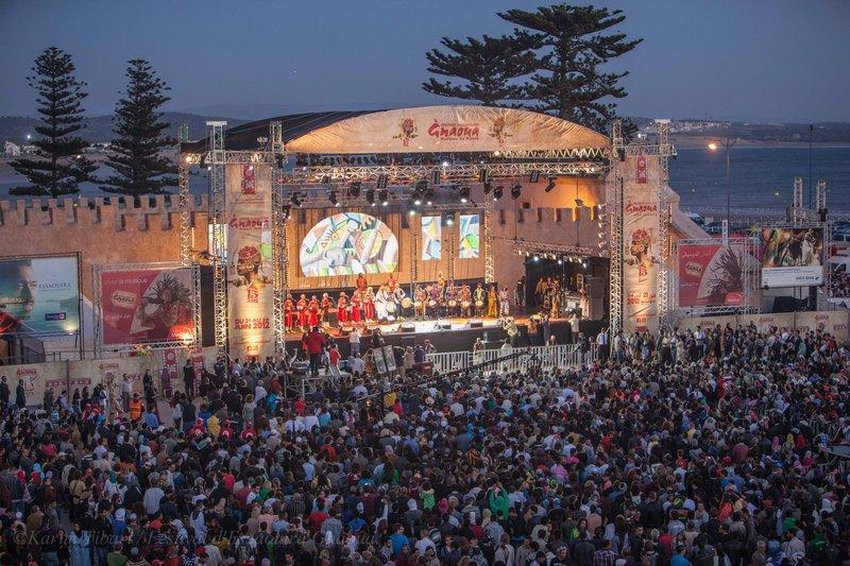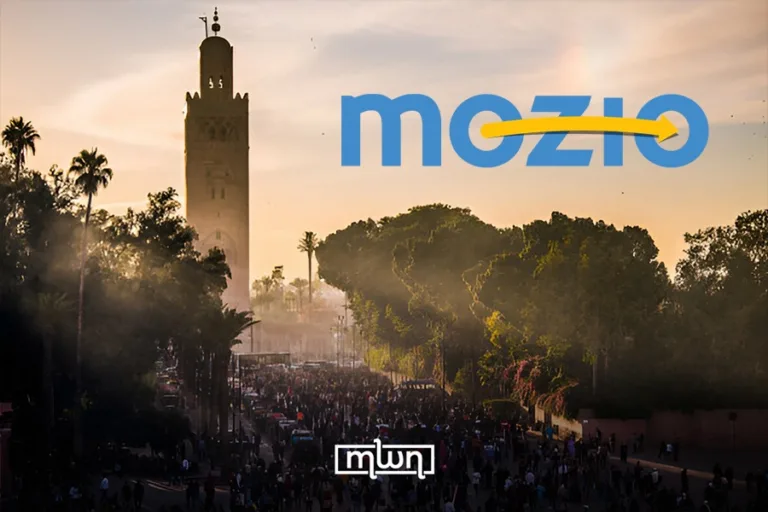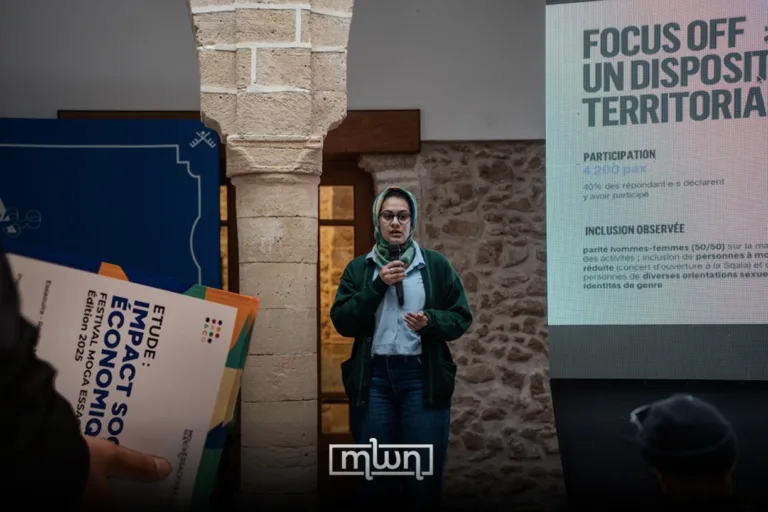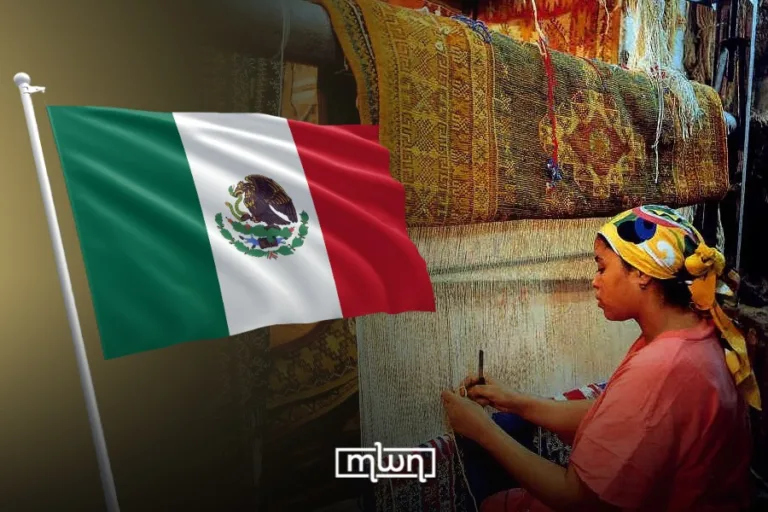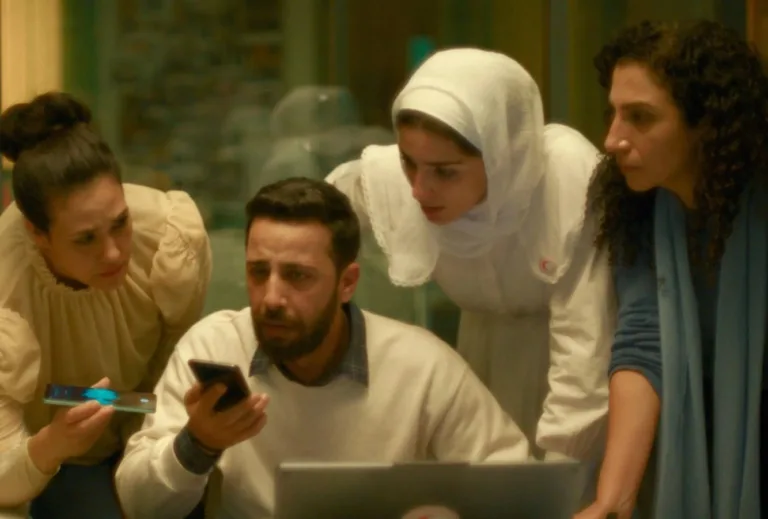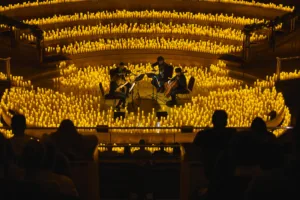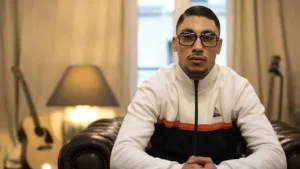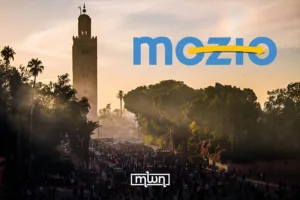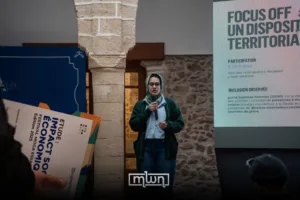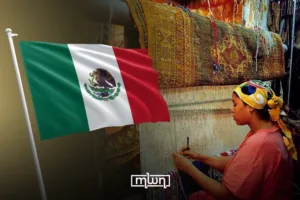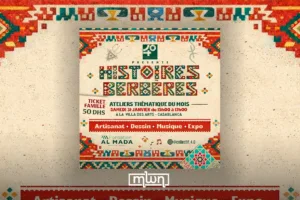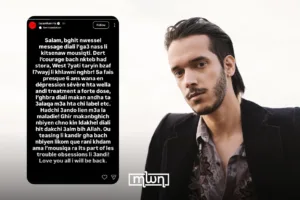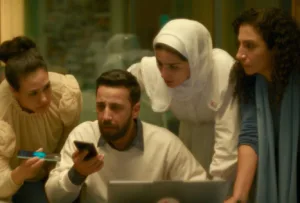Rabat – One of Morocco’s most highly anticipated and largest annual music festivals, the Gnaoua World Music Festival, is set to kick off its 24th edition on Thursday, June 22nd.
The festival hosts an array of world-renowned musicians from across the globe, as well as its own Human Rights Forum, which brings together academics, activists, and artists from all walks of life to explore important societal issues.
Morocco’s “Gospel”
Foundational to Morocco’s traditional evolution, Gnaoua music dates back to the 15th and 16th centuries, when populations from sub-Saharan Africa and the Sahel were enslaved and brought to Morocco, bringing with them the rhythms, melodies, and religious traditions of their people.
Known as the “gospel” of Morocco, Gnaoua music has been woven into Morocco’s colorful cultural tapestry for centuries. Despite the genre’s long history in Morocco and exposure to external influences, it remains well preserved as a thriving tradition with a unique rhythmic and spiritual identity, easily distinguished by its driving percussion and hypnotic musical stylings.
The Human Rights Forum
Since its inception, the Gnaoua World Music Festival’s Human Rights Forum has been a place for debate and openness.
In the last ten years, the forum has explored major subjects such as the role of young people in changing societies, the place of women in Africa, the contributions of diasporas, and the use of culture to counter violence.
After a three-year hiatus due to COVID-19, the festival is holding the forum again in its 10th edition on Friday and Saturday.
This year’s theme is “identity and belonging,” a topic growing in importance as identity politics continue to pose new challenges for nations around the globe and remain at the center of many political and social discussions within Morocco and beyond.
Speakers will discuss the topic in four roundtable panels, then engage with the audience in a public discussion afterwards.
Panel Lineup
The first panel in the series will feature a dialogue between French historian Patrick Boucheron and Moroccan philosopher Ali Benmakhlouf, addressing the question, “What do history and philosophy tell us?”
The second panel invites Moroccan anthropologist Yasmine Chami, Ivorian writer Yacouba Konate, French-Moroccan CEO of sustainable energy company Solvay Ilham Kadri, and Moroccan international affairs scholar Hisham Aïdi.
The four will discuss identity tensions in a talk moderated by senior advisor to Morocco’s King Mohammed VI, Andre Azoulay.
The third panel explores the topic of “Serene Identities and Fraternal Universalism”. The panel will host Moroccan anthropologist Hassan Rachik, sociology professor Mustapha El Miri, and Tunisian psychoanalyst Raja Ben Slama.
The topic of “Human Mobility and Migration” will be the topic of the fourth panel with political scientist Marco Martiniello, Dutch-Moroccan historian Nadia Bouras, French documentarian and author Bouchera Azzouz, and Argentinian drummer Minino Garay.
The fifth and final panel will include Moroccan economist and author Fouad Laroui, Moroccan anthropologist Aomar Boum, American actor Robert Wisdom, French politician Fadila Mehal, as well as political scientist and anthropologist Mohamed Tozy.
The experts will set out to collectively unpack the concept of “Identity”, and what it means for individuals, communities, and nations.
The Human Rights Forum remains at the forefront of these discussions in Africa, providing a space to gather and draw upon the power of music and creativity as vessels for change.

